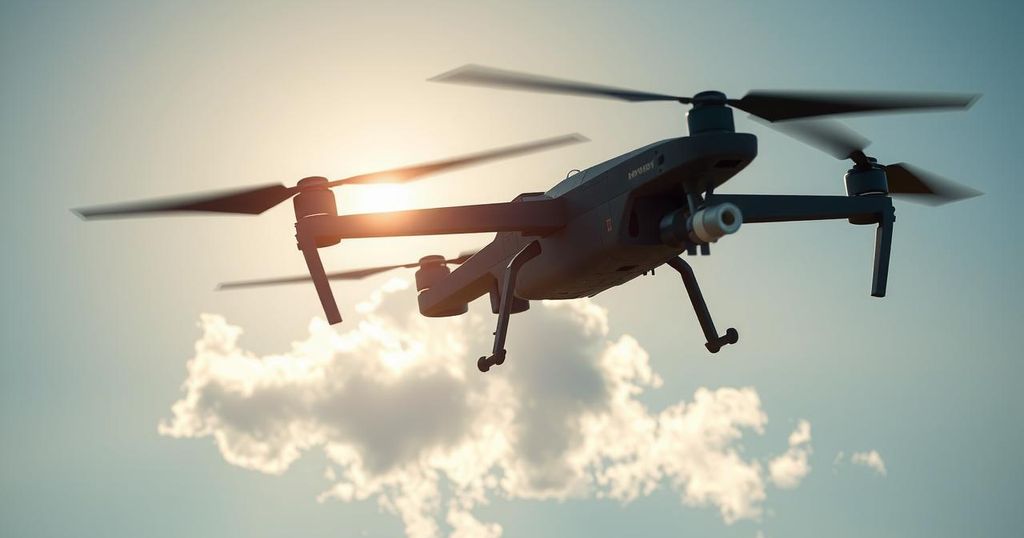Kurdish Official Denies Iranian Drone Acquisition and Critiques Turkish Media Propaganda

A Kurdish military official refuted claims of drone acquisition from Iran, labeling them as Turkish propaganda. He emphasized the self-sufficiency of Kurdish drone capabilities and denounced the Turkish media for manipulating narratives. The statement reflects ongoing tensions between Turkey and the Kurdish population, amidst fears of rising violence and the impacts of Turkey’s military actions in Syria.
A Kurdish military official stated during a video call with The Jerusalem Post that claims of Kurdish forces acquiring drones from Iran are merely Turkish propaganda. He dismissed these accusations as false, emphasizing that their drone capabilities are basic and developed internally by their fighters. The official criticized the Turkish media, particularly the conservative outlet Yeni Safak, for attempting to distort the Kurdish image and link them to extremist regimes. He asserted that this misinformation is a tactic to undermine Kurdish forces, especially given Turkey’s ongoing military operations against Kurdish populations in Syria.
The historical tension between Turkey and its Kurdish minority remains severe, rooted in ethnic disputes and the struggle for Kurdish independence. Kurdish groups have gained autonomy in regions of Syria with Western support, causing Turkey to view these formations as threats. Turkish military operations have targeted Kurdish-controlled areas, further complicating the situation as the Syrian regime consolidates its power. Kurdish leaders express concern about the expansive ambitions of President Erdogan and the plight of Kurds threatened by Turkish military interventions. Furthermore, there is wariness regarding the relations between the new Damascus regime and Kurdish citizens, as well as the potential rise of ISIS attacks against Kurdish minorities.
The Kurdish military official’s comments highlight the complexities of the Turkish-Kurdish relationship and the impact of media narratives on public perception. The Kurdish forces maintain that their capabilities are self-developed and criticize the Turkish government’s attempts to portray them as linked to extremist elements. There is an ongoing sense of vulnerability within Kurdish regions administered in Syria, particularly as they face both Turkish aggression and the unpredictability of the Syrian political landscape. The call for unity among minority groups and hopeful perspectives regarding cooperation with Israel reflect the broader aspirations for peace in a tumultuous region.
Original Source: www.jpost.com







